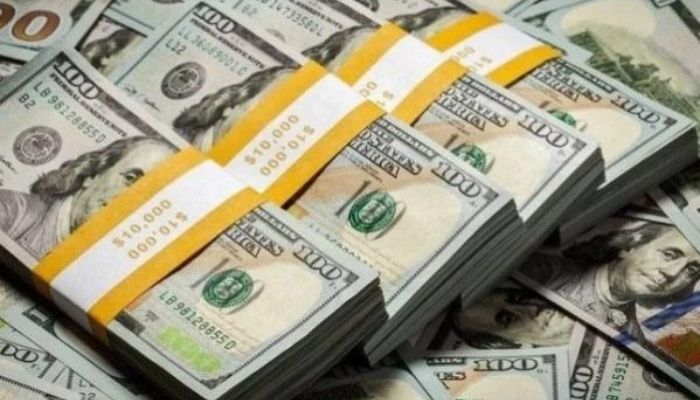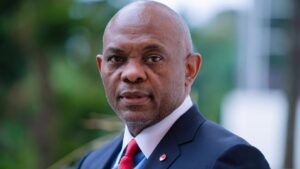
Foreign reserves hit $40bn as CBN strengthens forex market
By Seun Ibiyemi
Nigeria’s foreign reserves have surpassed the $40 billion mark for the first time in nearly three years, signalling a crucial milestone in the country’s economic recovery efforts.
The Governor of the Central Bank of Nigeria (CBN), Olayemi Cardoso, disclosed this development during a high-level meeting with Talal Al-Humond, Assistant Governor for Monetary Affairs at the Saudi Arabian Central Bank (SAMA), held on the sidelines of the inaugural Conference on Emerging Market Economies in Riyadh.
According to a statement from the CBN on Monday, Cardoso reported that Nigeria’s foreign reserves had exceeded $40 billion, reaching their highest level in almost three years.
Cardoso attributed this increase to key policy reforms introduced by the apex bank, including the adoption of an electronic matching system to enhance transparency in the foreign exchange market and the implementation of a foreign exchange code of ethics. The code, which all Nigerian banks have agreed to, aims to ensure strict adherence to market rules, fostering confidence among investors and market participants.
At the conference, jointly organised by the Saudi Ministry of Finance and the International Monetary Fund (IMF) Regional Office, Cardoso advocated for stronger economic ties between Nigeria and the Middle East. He emphasised that Nigeria could gain valuable insights from Saudi Arabia’s approach to infrastructure development, economic diversification, and tourism investment.
As part of efforts to enhance Nigeria’s economic position, the CBN Governor reaffirmed his commitment to collaborating with the Nigerian diaspora in the Middle East. He stressed that increased remittance inflows from Nigerians abroad would be instrumental in strengthening the country’s financial sector.
“The CBN will continue to implement policies that promote macroeconomic stability, encourage private sector growth, and create high-quality jobs,” Cardoso stated.
He also acknowledged Saudi Arabia’s economic transformation efforts, particularly its investments in sustainability and large-scale economic projects, as areas from which Nigeria could draw inspiration.
In response, Talal Al-Humond assured Cardoso that the Saudi Arabian Central Bank remained open to collaboration with the CBN to achieve shared economic objectives.
During a panel discussion moderated by Jihad Azour, Director of the Middle East and Central Asia Department at the IMF, Cardoso discussed critical reforms in Nigeria’s financial markets. He noted that Nigeria had previously experienced a significant gap—at times as wide as 60%—between the official and parallel market exchange rates.
However, he explained that due to consistent policy direction, improved market confidence, and greater transparency in foreign exchange trading, the exchange rate disparity had now narrowed to approximately 4-5%.
Cardoso acknowledged that Nigeria had faced severe economic challenges, including capital flight, multiple exchange rate regimes, currency depreciation, high inflation, and a backlog of foreign exchange transactions. These issues had weakened investor confidence and created instability in financial markets.
Upon assuming office, Cardoso prioritised restoring confidence in the forex market by clearing the backlog of outstanding transactions and reinforcing Nigeria’s commitment to economic stability.
To curb inflation and maintain macroeconomic discipline, the CBN adopted a tight monetary policy stance, raising interest rates by 850 basis points over the past year. The bank also shifted away from quasi-fiscal interventions that had previously distorted the economy, embracing a more conventional monetary policy framework instead.
One of the most notable policy changes under Cardoso’s leadership has been the removal of Nigeria’s long-standing fuel subsidy. He revealed that inefficiencies in the forex market and the subsidy had cost the country approximately 6% of its Gross Domestic Product (GDP) annually.
Unlike previous administrations that hesitated to take decisive action, the current government implemented the subsidy removal, resulting in significant fiscal savings and a more sustainable economic outlook.
To strengthen Nigeria’s financial system, the CBN mandated banks to increase their capital base to build resilience against future economic shocks. Cardoso stated that this recapitalisation effort had already shown positive results, ensuring that the banking sector remains strong and capable of supporting economic growth.
Addressing the country’s financial inclusion rate, which currently stands at 74%, Cardoso emphasised the need for a more aggressive expansion to ensure that economic growth benefits all Nigerians, particularly those in underserved communities.
He identified digitalisation as a key tool for financial inclusion, highlighting that expanding mobile money services and leveraging technology—especially for gender-focused initiatives—could significantly reduce the financial access gap.
The CBN Governor asserted that Nigeria’s monetary policy decisions were tailored to the country’s specific economic conditions rather than global trends. He noted that while some international financial experts were initially sceptical of Nigeria’s tightening stance, many have since acknowledged its effectiveness.




